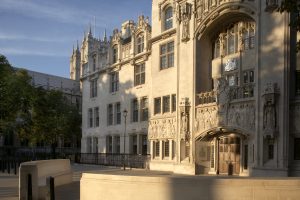
The Treasury should be pleased by the Supreme Court’s decision in the Prudential case. The case is one of the long-running claims that the UK’s tax treatment of foreign dividends broke EU free movement of capital rules. The UK changed the law in 2009 – but there’s still plenty of money involved in claims for back years.
This particular case is about portfolio dividends, typically held by investment funds, where the shareholding is less than 10% and usually much less. The UK used to levy corporation tax on such dividends, whereas equivalent dividends from UK investments were exempt. The European Court of Justice decided this was unlawful many years’ ago – but this case was about the exact method of allowing relief for overseas tax. The Supreme Court has decided that relief should be given by reference to the foreign nominal rate, irrespective of whether this was actually paid by the underlying company. It’s a sensible, pragmatic answer.
The element of the case which has the biggest impact is the Court’s ruling on compound interest. Prudential – and many other claimants – have argued that they should be given compound interest on their tax refunds, which could easily double or triple the value of a claim. HMRC have estimated that paying compound interest on all claims could cost the Exchequer some £4-5 billion.
However, the Supreme Court ruled that a 2007 case, Sempra Metals, had been wrongly decided by the House of Lords. The Supreme Court has followed its recent decision in Littlewoods and decided that the EU principle of effectiveness (requiring an effective remedy for breach of EU law) did not require compound interest.
UK law similarly does not require the payment of compound interest. The Supreme Court noted that there is symmetry between taxpayers and the Exchequer, with tax law setting simple interest for both.
The result is that the Exchequer will save over £4 billion, which will no doubt come as a relief in these times of deficits.